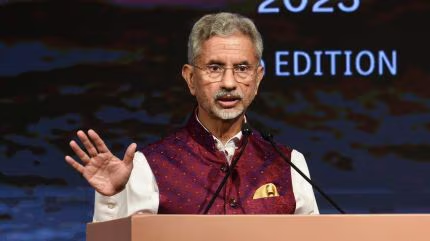New Delhi/Washington – External Affairs Minister S. Jaishankar has said that India and the United States have not yet found a “landing ground” for their ongoing trade discussions, stressing that India’s red lines must be respected as negotiations continue on several contentious issues. His remarks come amid heightened efforts to finalize a balanced trade agreement that addresses both nations’ strategic and economic interests.
Speaking at a press briefing, Jaishankar acknowledged the importance of trade as a key pillar of the India–U.S. partnership but emphasized that mutual respect for each other’s core concerns was essential for meaningful progress. “Trade negotiations are complex, and both sides have their priorities. We have not yet arrived at a landing ground, but we are committed to continuing the dialogue in good faith,” he said.
The two countries have been in discussions over a range of issues, including tariff reductions, market access for agricultural products, digital trade regulations, and rules on intellectual property. While there has been progress in some areas, sticking points remain over data protection policies, subsidy frameworks, and India’s demand for greater flexibility to protect domestic industries.
Jaishankar made it clear that India would not compromise on issues that affect its economic sovereignty and development goals. “Our red lines must be respected. We welcome fair trade, but it must be on terms that recognize the realities of both economies,” he stated.
U.S. trade officials have been pressing India to open up certain sectors and reduce tariffs on American goods, while India has sought assurances on visa policies, technology cooperation, and fair treatment for its exporters. Analysts say both sides are aware of the strategic importance of reaching an agreement, especially as they strengthen their geopolitical partnership in the Indo-Pacific.
Recent rounds of talks have been described as “constructive but challenging,” with negotiators working to narrow gaps before the next high-level meeting. Experts believe a limited trade deal may be more realistic in the short term than a comprehensive agreement, given the complexity of unresolved issues.
Despite the hurdles, both governments have publicly reaffirmed their commitment to a stronger economic relationship. For India, maintaining its development priorities while expanding trade ties with the U.S. remains a delicate balancing act. For Washington, securing better market access in one of the world’s fastest-growing economies is a key strategic goal.
As talks continue, the coming months will be crucial in determining whether the two nations can bridge their differences and craft a trade framework that serves their long-term interests.

